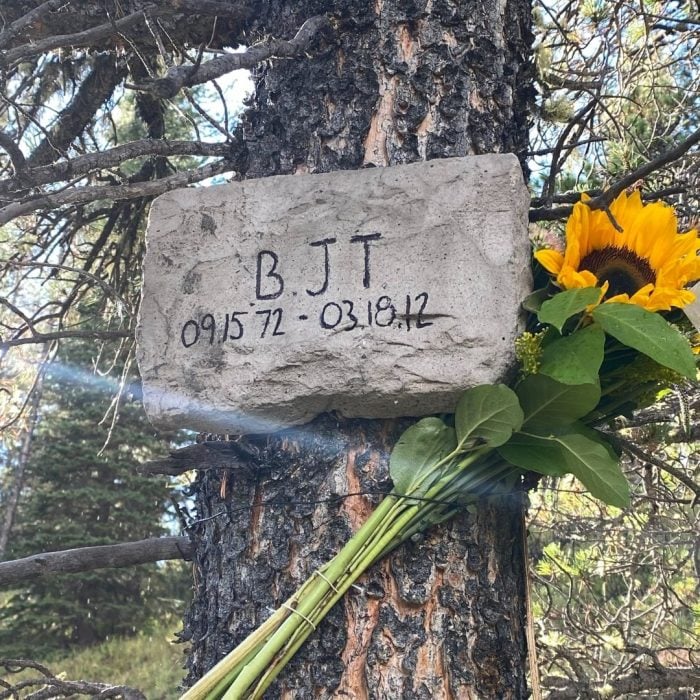I had originally written a similar article years ago, but when I think about it today, it feels like yesterday.
Celebrity Ricki Lake had posted on her Instagram that year:
“It is with a heavy heart that I share that my beloved soulmate, Christian Evans has passed. He succumbed to his lifelong struggle with bipolar disorder.”
Instantly, I knew what she meant. And how she felt.
I read the flood of comments, mostly supportive toward her: “Love, best wishes, sorry for your loss.” But, as all of us entangled in this complicated world of mental illness and addiction know, the lack of understanding or compassion toward our loved one will rear its ugly head.
As soon as I began reading “selfish” and “no one dies from bipolar,” I stopped reading. After all, I know how it goes.
And I disagree. People do die from bipolar disorder and other illnesses every day.
Personally, I don’t think anyone dies from suicide.
I have spent my entire life surrounded by alcohol addiction; it exists on many branches of my family tree. Just like Lake, I loved someone very much who struggled in this life but lost his brave battle in March 2012.
I spent over six years—six long, excruciating years—obsessed and determined to save my younger brother from addiction. I am not saying this because I believe I’m some kind of hero, but rather just the opposite. I am saying it because I acknowledge I made several mistakes along the way. My brother was lost. So was I.
Our journey had become such a crazy, out-of-control series of events that I started keeping notes; I didn’t think anyone would believe this could happen from “just alcohol.”
While most stories of its kind give you just a partial glimpse of what goes on, it became my intent to tell the whole story, without shame, beginning with our childhood. What I know now—and didn’t know then—is that childhood trauma can cause anxiety, depression, severe mental health issues, alcohol and drug addiction, and yes, even suicidal ideation.
And so, without any prior writing experience, I wrote a memoir: The Sun is Gone: A Sister Lost in Secrets, Shame, and Addiction, and How I Broke Free.
Within a couple of days, I got my first newspaper interview. I was grateful; I couldn’t spread this important message of change without the support of the media.
I believed these uncomfortable topics were going to create a conversation. Eliminate the shame and stigma. Encourage families to all get the help they need.
When the article was published the next day, I read the second sentence and lost my breath. It was a reminder of how powerful and influential the media is when reporting on a story.
“…ended with suicide.”
What? His suicide?!
Those simple words threw me off, and I started to cry. I had spent over three years writing, a girl on a mission, calculated and precise. I knew exactly how I wanted to tell this story, and it was always my intent that no one know the ending in advance. Not because I was hiding or ashamed or trying to pull a fast one, but rather I wanted to allow everyone to experience my brother’s and my journey, just as we did.
I wanted to allow everyone to experience what it really feels like while also giving knowledge, courage, encouragement, compassion, empathy, and most importantly, hope.
The CDC (Centers for Disease Control and Prevention) states that suicide is the leading cause of death in the United States. In 2020, 46,000 people died from suicide, 12.2 million thought about suicide, 3.2 million made a plan, and 1.2 million attempted suicide.
These are incredibly important statistics. These are our mothers, fathers, brothers, sisters, grandparents, aunts, uncles, cousins, friends, neighbors, and children.
But let’s not zoom in on just that one word—suicide—or we will not be looking in the right direction. We will be losing sight of the issues at hand: the causes and help for depression, anxiety, bipolar disorder, borderline personality disorder, addiction, and all the other things that lead to someone taking their own life.
I have watched a loved one pass away from cancer. Someone who was once a strong, energetic, virile man gradually became confined to a hospital bed with feeding tubes; he was unable to speak, had suffered weight loss, and become a shell of who he once was. But no one would ever say that he died from heart failure when, finally, his heart could not take fighting the cancer anymore.
My brother did not die from suicide.
My brother died a slow, painful, agonizing death from addiction and mental illness. Did he take his own life? Yes. But that does not change the fact that alcoholism was what led to his death.
Had my brother found sobriety and help for his mental health issues, he would still probably be anxious, uncomfortable, and have to find the strength within himself to work through his pain. He would have had complicated struggles with his family and with all of life’s difficulties, in the way that we all have. But he would be alive today.
My brother died 11 years ago on March 18th, 2012. It feels like yesterday.
~
Please consider Boosting our authors’ articles in their first week to help them win Elephant’s Ecosystem so they can get paid and write more.
~

 Share on bsky
Share on bsky







Read 15 comments and reply